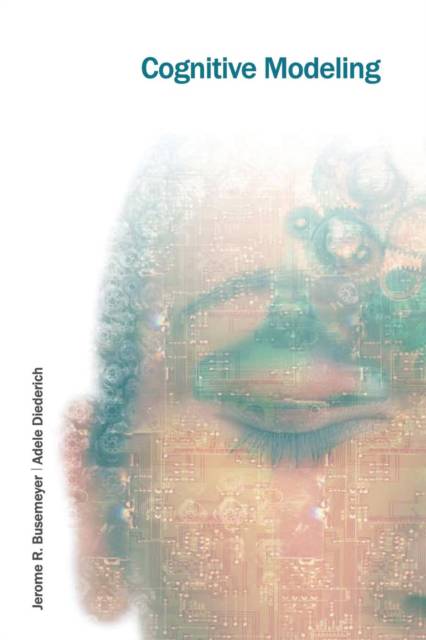
- Retrait gratuit dans votre magasin Club
- 7.000.000 titres dans notre catalogue
- Payer en toute sécurité
- Toujours un magasin près de chez vous
- Retrait gratuit dans votre magasin Club
- 7.000.0000 titres dans notre catalogue
- Payer en toute sécurité
- Toujours un magasin près de chez vous
Description
Cognitive Modeling is the first book to provide students with an easy-to understand introduction to the basic methods used to build and test cognitive models. Authors Jerome R. Busemeyer and Adele Diederich answer many of the questions that researchers face when beginning work on cognitive models, such as the following: What makes a cognitive model different from conceptual or statistical models? How do you develop such a model? How can you derive qualitatively different predictions between two cognitive models? Focusing on a few key representations, the authors introduce a basic problem in each chapter, illustrate the concept with three examples, and end with a summary of general principles, making this book by far the most accessible cognitive modeling book on the market.
Key Features
- Emphasizes modeling by presenting the tools needed to build a cognitive model, rather than simply reviewing existing models of cognition
- Provides tutorial presentations of psychological, mathematical, statistical, and computational methods used in all areas of cognitive modeling
- Includes detailed examples applied to real cognitive models published in the literature in a variety of areas, including recognition, categorization, decision making, and learning
- Stresses the importance of designing the right conditions for evaluating models
- Addresses the issues of individual differences in cognitive modeling head-on
Cognitive Modeling is ideal for students and researchers across the various domains of cognitive sciences, including perception, learning, decision making, and inference. It is intended for use in upper-level undergraduate and graduate courses such as Cognition/Cognitive Modeling, Cognitive Science, Cognitive Psychology, Quantitative Methods, and Mathematical Modeling in Psychology.
Spécifications
Parties prenantes
- Auteur(s) :
- Editeur:
Contenu
- Nombre de pages :
- 224
- Langue:
- Anglais
Caractéristiques
- EAN:
- 9780761924500
- Date de parution :
- 02-04-09
- Format:
- Livre broché
- Format numérique:
- Trade paperback (VS)
- Dimensions :
- 150 mm x 224 mm
- Poids :
- 294 g

Les avis
Nous publions uniquement les avis qui respectent les conditions requises. Consultez nos conditions pour les avis.






